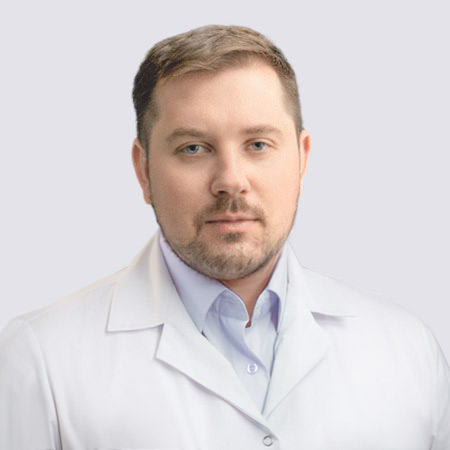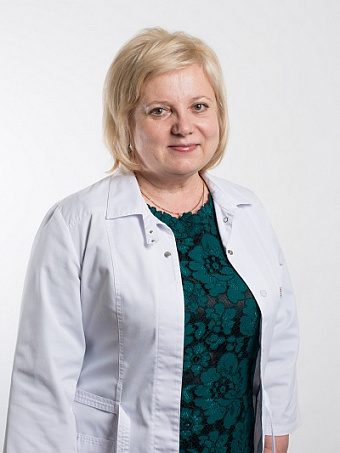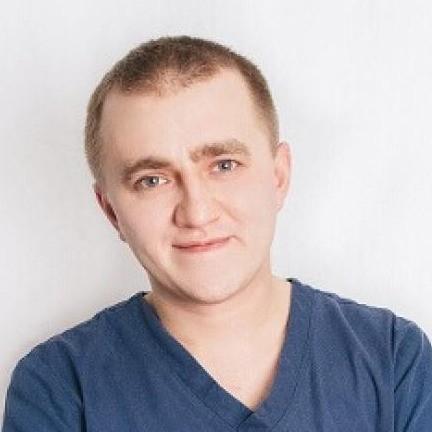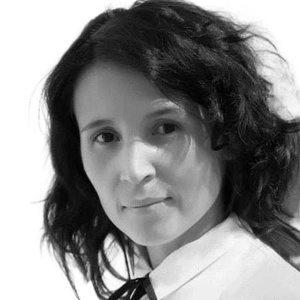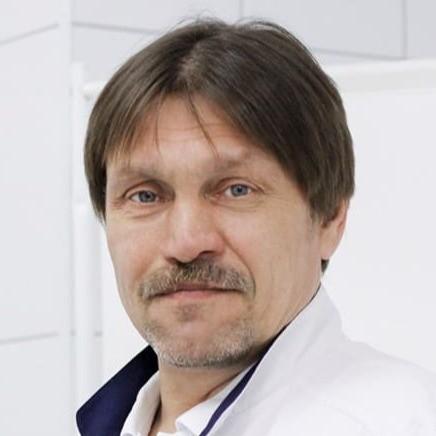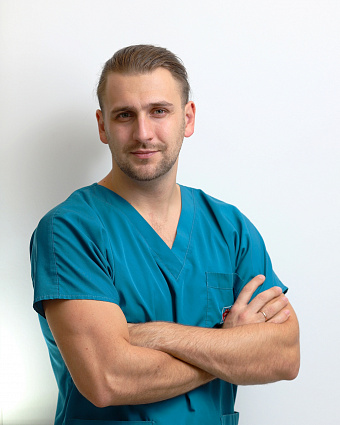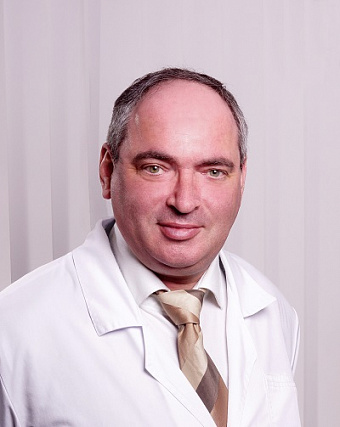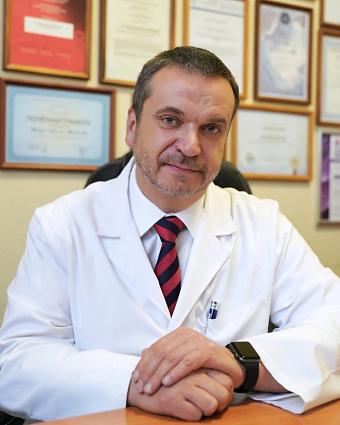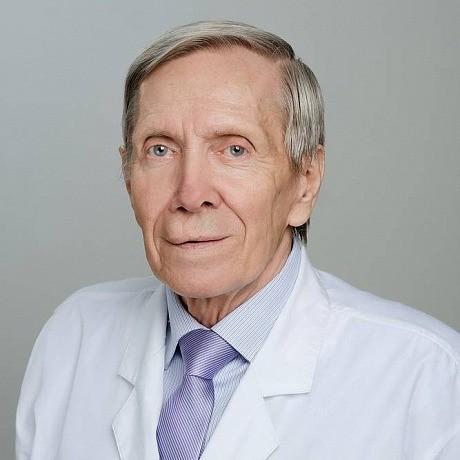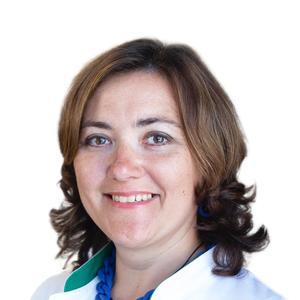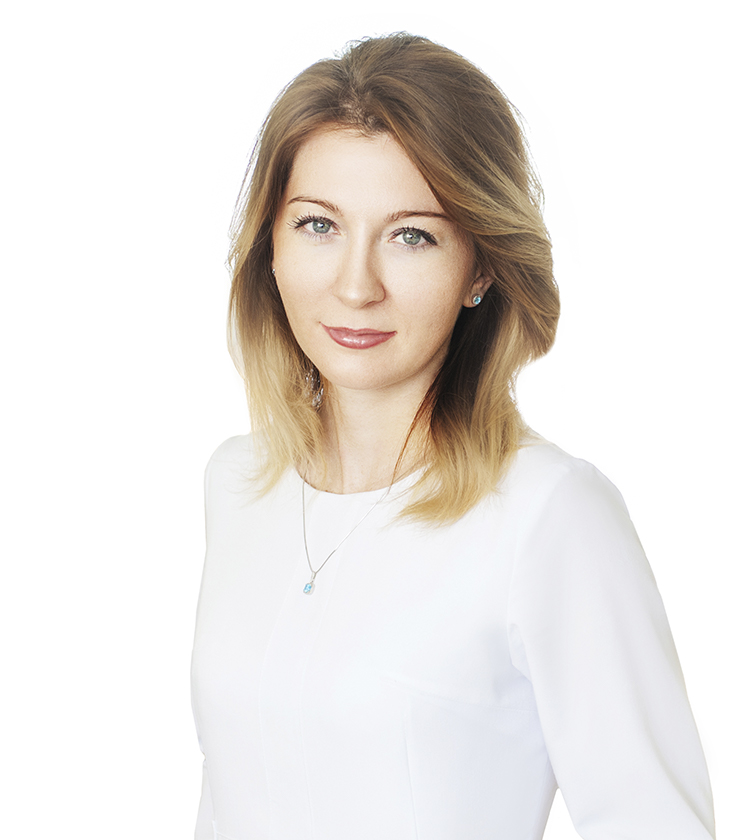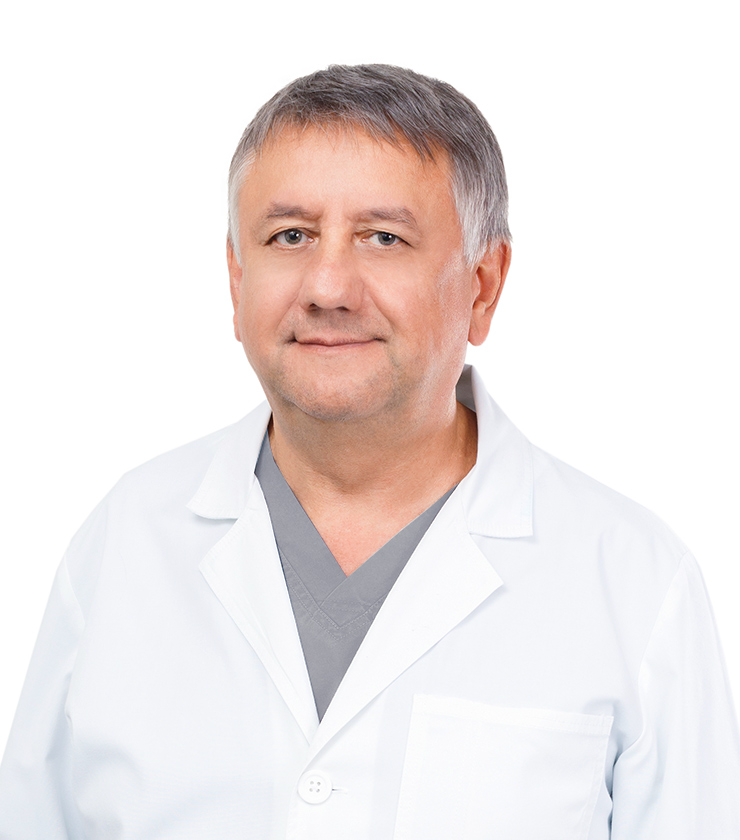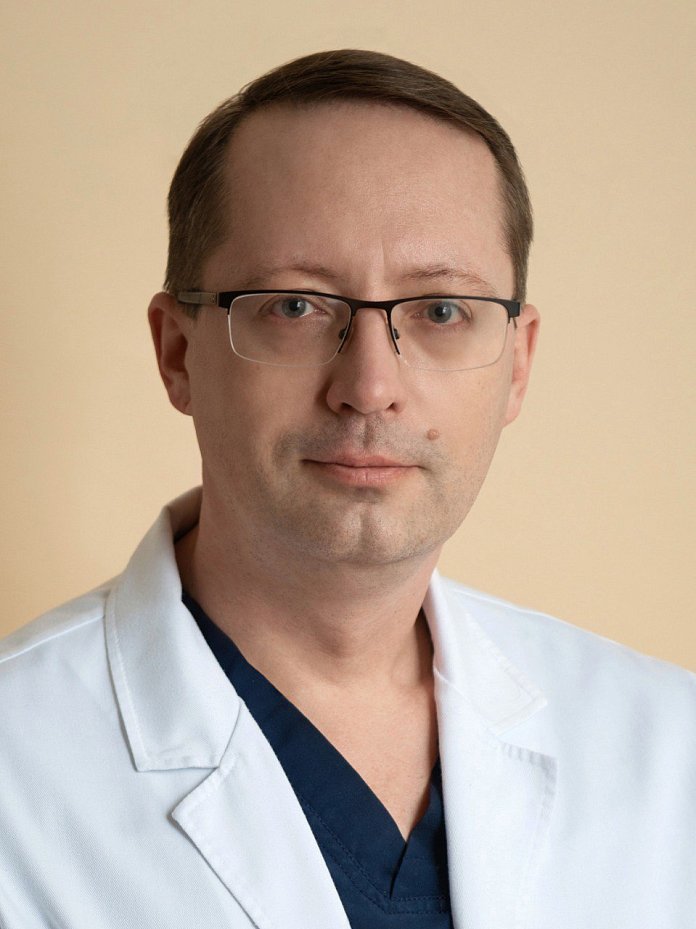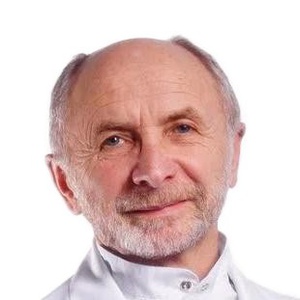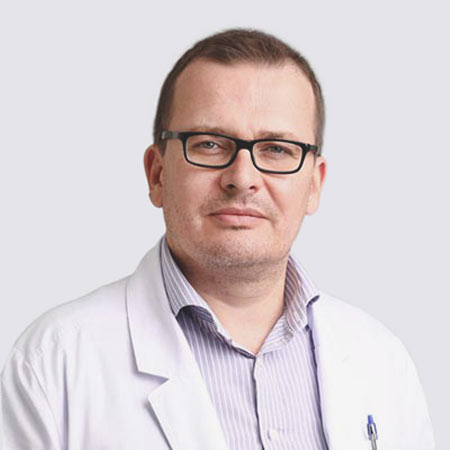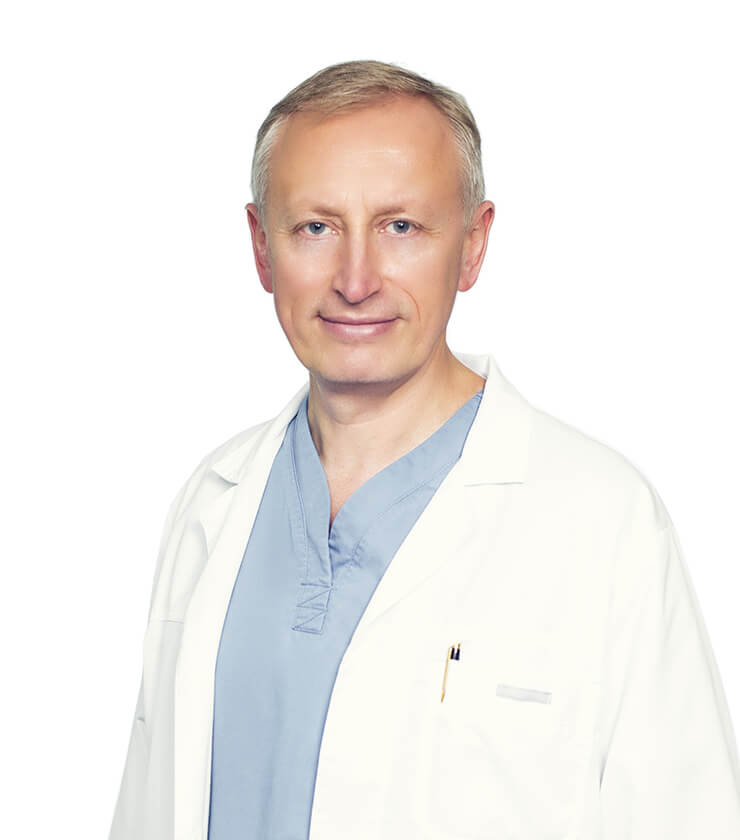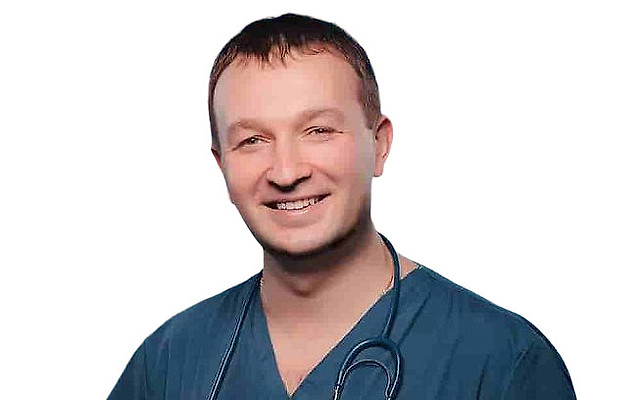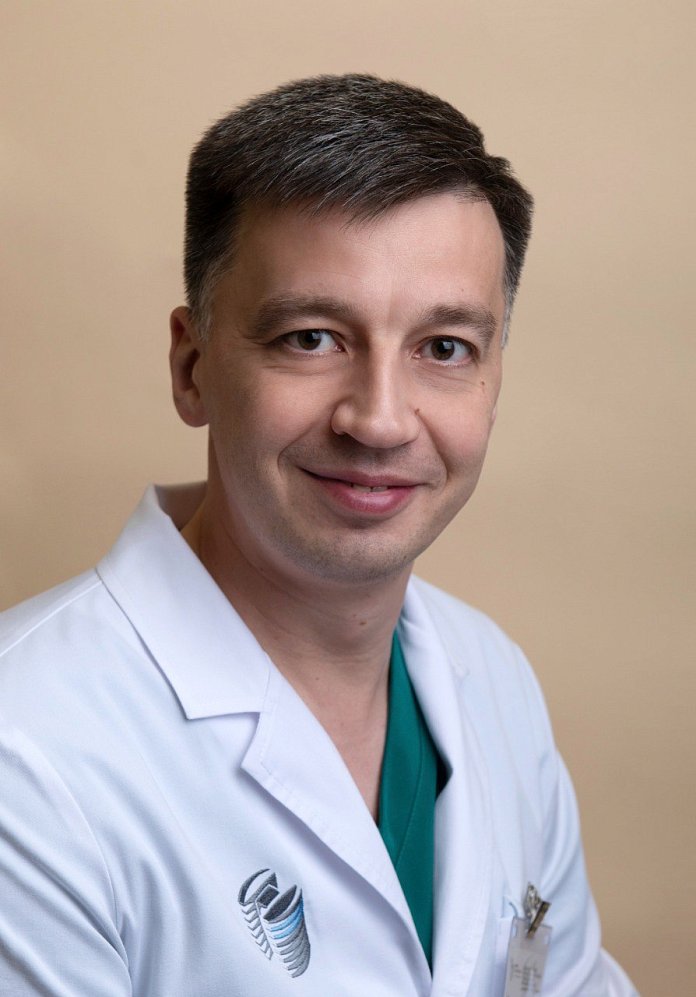Gastrointestinal Cancer
Gastrointestinal (GI) cancer refers to malignant tumors developing in the organs of the digestive system: the stomach, intestines, esophagus, pancreas, and others. Stomach cancer is the most common form. This serious disease involves malignant cells growing in the mucous membrane of the organ and penetrating deeper layers, disrupting its functions and spreading to nearby tissues and lymph nodes. The disease progresses differently in each patient: in some, it develops slowly, while others face an aggressive form. Without treatment, GI cancer can lead to metastases and severe complications. Therefore, early diagnosis and appropriately selected therapy play a key role.
Symptoms of Stomach Cancer
Symptoms depend on the stage of the disease and the tumor's location. In the early stages, the disease may be asymptomatic or manifest with mild signs.
Causes of Stomach Cancer
GI cancer develops under the influence of multiple factors. The main ones are:
-
Hereditary predisposition
-
Chronic stomach and intestinal diseases, including gastritis and ulcers
-
Infection with Helicobacter pylori
-
Harmful habits such as smoking and alcohol abuse
-
Poor diet, especially with a predominance of salty, smoked, and fried foods
Types of Stomach Cancer
Several types of GI cancer are distinguished based on tumor morphology and location. The most common forms are:
-
Adenocarcinoma (most frequent)
-
Gastric lymphoma
-
Squamous cell carcinoma
-
Neuroendocrine tumors
Each type requires an individual approach to diagnosis and treatment.
Diagnosis of Stomach Cancer
To establish an accurate diagnosis, the doctor uses a set of methods:
-
Esophagogastroduodenoscopy (EGD)
-
Biopsy and histological examination
-
Abdominal ultrasound
-
CT or MRI
-
Tumor marker tests
Modern clinics in Russia use precise imaging and molecular diagnostic techniques, allowing tumors to be detected at early stages.
Methods of Treating Stomach Cancer
Depending on the stage and the patient’s condition, doctors select the optimal therapy strategy. Treatment may include surgery, chemotherapy, radiation therapy, and targeted drugs.
Surgical Treatment
Surgery is the primary method of fighting the tumor. The doctor may perform a partial or total gastrectomy, removing malignant tissues. For early-stage cancer, local intervention may suffice, while advanced stages require extended surgery with lymph node removal.
Chemotherapy
Chemotherapy is administered both before and after surgery. It aims to destroy remaining cancer cells and reduce the risk of recurrence. The drugs are selected individually depending on the tumor type and sensitivity.
Radiation Therapy
Radiation therapy is used to reduce tumor size before surgery or as a palliative method in later stages. It destroys cancer cells using ionizing radiation.
Targeted Therapy
A modern method aimed at specific molecules involved in the malignant process. It allows for precise tumor targeting with minimal damage to healthy tissues.
Palliative Care
At advanced stages, when a cure is no longer possible, the patient may require palliative treatment. It aims to relieve symptoms, improve quality of life, and maintain body functions.
Stages of Stomach Cancer
The disease is classified by stages:
-
Stage 0 — carcinoma in situ, tumor limited to the mucous membrane
-
Stage I — submucosal layer involvement, no metastases
-
Stage II — lymph node involvement
-
Stage III — deep tumor invasion, multiple metastases
-
Stage IV — widespread process, distant metastases
Rehabilitation After Treatment
After surgery and chemotherapy, patients require recovery. Key rehabilitation measures include:
-
A special diet
-
Medical support
-
Monitoring for possible complications
-
Psychological assistance
Rehabilitation is carried out under medical supervision, often on an outpatient basis or in hospitals.
Prevention of Stomach Cancer
To reduce the risk of disease, it is important to:
-
Quit smoking and alcohol
-
Eat a balanced diet
-
Timely treat chronic gastritis and ulcers
-
Undergo regular check-ups, especially with hereditary predisposition
These simple measures can significantly lower the likelihood of developing GI tumors.
GI Cancer Treatment in Russia
Clinics
Russia has leading medical centers offering modern GI cancer treatment.
-
European Clinic (Moscow) — a private cancer center offering minimally invasive surgeries, targeted therapy, and chemotherapy. A multidisciplinary team develops the treatment plan.
-
N.N. Blokhin Center (Moscow) — the largest state cancer center. Complex surgical interventions are performed here, along with the latest treatment methods, including participation in international protocols.
-
EMC (European Medical Center) — an international-level clinic offering immunotherapy, personalized approaches, and comfortable conditions for patients from Russia and abroad.
All three centers provide a full cycle — from diagnosis to post-treatment recovery.
Cost
Treatment cost varies depending on the scope of intervention and technologies used. On average:
-
Initial oncologist consultation — from 100–150 USD
-
Diagnostics (CT, MRI, endoscopy, biopsy) — from 500 to 1500 USD
-
Surgical treatment — from 3000 to 7000 USD
-
Chemotherapy course — from 1000 to 3000 USD per cycle
-
Targeted or immunotherapy — from 2000 USD and above
MARUS Assistance
The MARUS platform helps patients with GI cancer access top clinics and doctors, choose effective treatment, arrange all documentation, and plan travel. We support the patient at every stage — from the first inquiry to the end of therapy and rehabilitation.
Ophthalmology
Oncology
Dentistry
Oncohematology
Care Assistants
All information on this website is provided for informational purposes only and does not constitute medical advice. All medical procedures require prior consultation with a licensed physician. Treatment outcomes may vary depending on individual characteristics. We do not guarantee any specific results. Always consult a medical professional before making any healthcare decisions.

Doctors
Choose the package that suits you best — from selecting the right doctor and clinic to full trip and treatment organization
MARUS support options
Choose a package that works for you — from choosing your doctor to full-service travel and treatment
Send a request
You choose the clinic — we’ll take care of travel and treatment arrangements and all the paperwork.

